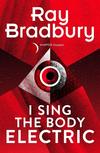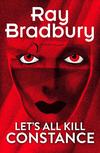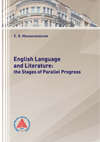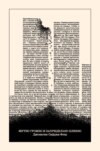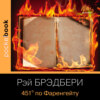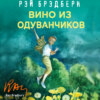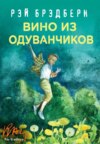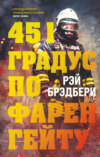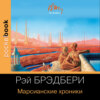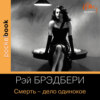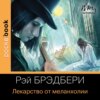Читать книгу: «I Sing the Body Electric», страница 2
The Terrible Conflagration Up at the Place
The men had been hiding down by the gatekeeper’s lodge for half an hour or so, passing a bottle of the best between, and then, the gatekeeper having been carried off to bed, they dodged up the path at six in the evening and looked at the great house with the warm lights lit in each window.
“That’s the place,” said Riordan.
“Hell, what do you mean, ‘that’s the place’?” cried Casey, then softly added, “We seen it all our lives.”
“Sure,” said Kelly, “but with the Troubles over and around us, sudden-like a place looks different. It’s quite a toy, lying there in the snow.”
And that’s what it seemed to the fourteen of them, a grand playhouse laid out in the softly falling feathers of a spring night.
“Did you bring the matches?” asked Kelly.
“Did I bring the—what do you think I am!”
“Well, did you, is all I ask.”
Casey searched himself. When his pockets hung from his suit he swore and said, “I did not.”
“Ah, what the hell,” said Nolan. “They’ll have matches inside. We’ll borrow a few. Come on.”
Going up the road, Timulty tripped and fell.
“For God’s sake, Timulty,” said Nolan, “where’s your sense of romance? In the midst of a big Easter Rebellion we want to do everything just so. Years from now we want to go into a pub and tell about the Terrible Conflagration up at the Place, do we not? If it’s all mucked up with the sight of you landing on your ass in the snow, that makes no fit picture of the Rebellion we are now in, does it?”
Timulty, rising, focused the picture and nodded. “I’ll mind me manners.”
“Hist! Here we are!” cried Riordan.
“Jesus, stop saying things like ‘that’s the place’ and ‘here we are,’” said Casey. “We see the damned house. Now what do we do next?”
“Destroy it?” suggested Murphy tentatively.
“Gah, you’re so dumb you’re hideous,” said Casey. “Of course we destroy it, but first … blueprints and plans.”
“It seemed simple enough back at Hickey’s Pub,” said Murphy. “We would just come tear the damn place down. Seeing as how my wife outweighs me, I need to tear something down.”
“It seems to me,” said Timulty, drinking from the bottle, “we go rap on the door and ask permission.”
“Permission!” said Murphy. “I’d hate to have you running hell, the lost souls would never get fried! We—”
But the front door swung wide suddenly, cutting him off.
A man peered out into the night.
“I say,” said a gentle and reasonable voice, “would you mind keeping your voices down. The lady of the house is sleeping before we drive to Dublin for the evening, and—”
The men, revealed in the hearth-light glow of the door, blinked and stood back, lifting their caps.
“Is that you, Lord Kilgotten?”
“It is,” said the man in the door.
“We will keep our voices down,” said Timulty, smiling, all amiability.
“Beg pardon, your Lordship,” said Casey.
“Kind of you,” said his Lordship. And the door closed gently.
All the men gasped.
“‘Beg pardon, your Lordship,’ ‘We’ll keep our voices down, your Lordship.’” Casey slapped his head. “What were we saying? Why didn’t someone catch the door while he was still there?”
“We was dumfounded, that’s why; he took us by surprise, just like them damned high and mighties. I mean, we weren’t doing anything out here, were we?”
“Our voices were a bit high,” admitted Timulty.
“Voices, hell,” said Casey. “The damn Lord’s come and gone from our fell clutches!”
“Shh, not so loud,” said Timulty.
Casey lowered his voice. “So, let us sneak up on the door, and—”
“That strikes me as unnecessary,” said Nolan. “He knows we’re here now.”
“Sneak up on the door,” repeated Casey, grinding his teeth, “and batter it down—”
The door opened again.
The Lord, a shadow, peered out at them and the soft, patient, frail old voice inquired, “I say, what are you doing out there?”
“Well, it’s this way, your Lordship—” began Casey, and stopped, paling.
“We come,” blurted Murphy, “we come … to burn the Place!”
His Lordship stood for a moment looking out at the men, watching the snow, his hand on the doorknob. He shut his eyes for a moment, thought, conquered a tic in both eyelids after a silent struggle, and then said, “Hmm, well in that case, you had best come in.”
The men said that was fine, great, good enough, and started off when Casey cried, “Wait!” Then to the old man in the doorway, “We’ll come in, when we are good and ready.”
“Very well,” said the old man. “I shall leave the door ajar and when you have decided the time, enter. I shall be in the library.”
Leaving the door a half inch open, the old man started away when Timulty cried out, “When we are ready? Jesus, God, when will we ever be readier? Out of the way, Casey!”
And they all ran up on the porch.
Hearing this, his Lordship turned to look at them with his bland and not-unfriendly face, the face of an old hound who has seen many foxes killed and just as many escape, who has run well, and now in late years, paced himself down to a soft, shuffling walk.
“Scrape your feet, please, gentlemen.”
“Scraped they are.” And everyone carefully got the snow and mud off his shoes.
“This way,” said his Lordship, going off, his clear, pale eyes set in lines and bags and creases from too many years of drinking brandy, his cheeks bright as cherry wine. “I will get you all a drink, and we shall see what we can do about your … how did you put it … burning the Place?”
“You’re Sweet Reason itself,” admitted Timulty, following as Lord Kilgotten led them into the library, where he poured whisky all around.
“Gentlemen.” He let his bones sink into a wing-backed chair. “Drink.”
“We decline,” said Casey.
“Decline?” gasped everyone, the drinks almost in their hands.
“This is a sober thing we are doing and we must be sober for it,” said Casey, flinching from their gaze.
“Who do we listen to?” asked Riordan. “His Lordship or Casey?”
For answer all the men downed their drinks and fell to coughing and gasping. Courage showed immediately in a red color through their faces, which they turned so that Casey could see the difference. Casey drank his, to catch up.
Meanwhile, the old man sipped his whisky, and something about his calm and easy way of drinking put them far out in Dublin Bay and sank them again. Until Casey said, “Your Honor, you’ve heard of the Troubles? I mean not just the Kaiser’s war going on across the sea, but our own very great Troubles and the Rebellion that has reached even this far, to our town, our pub, and now, your Place?”
“An alarming amount of evidence convinces me this is an unhappy time,” said his Lordship. “I suppose what must be must be. I know you all. You have worked for me. I think I have paid you rather well on occasion.”
“There’s no doubt of that, your Lordship.” Casey took a step forward. “It’s just, ‘the old order changeth,’ and we have heard of the great houses out near Tara and the great manors beyond Killashandra going up in flames to celebrate freedom and—”
“Whose freedom?” asked the old man, mildly. “Mine? From the burden of caring for this house which my wife and I rattle around in like dice in a cup or—well, get on. When would you like to burn the Place?”
“If it isn’t too much trouble, sir,” said Timulty, “now.”
The old man seemed to sink deeper into his chair.
“Oh, dear,” he said.
“Of course,” said Nolan quickly, “if it’s inconvenient, we could come back later—”
“Later! What kind of talk is that?” asked Casey.
“I’m terribly sorry,” said the old man. “Please allow me to explain. Lady Kilgotten is asleep now, we have guests coming to take us into Dublin for the opening of a play by Synge—”
“That’s a damn fine writer,” said Riordan.
“Saw one of his plays a year ago,” said Nolan, “and—”
“Stand off!” said Casey.
The men stood back. His Lordship went on with his frail moth voice, “We have a dinner planned back here at midnight for ten people. I don’t suppose—you could give us until tomorrow night to get ready?”
“No,” said Casey.
“Hold on,” said everyone else.
“Burning,” said Timulty, “is one thing, but tickets is another. I mean, the theater is there, and a dire waste not to see the play, and all that food set up, it might as well be eaten. And all the guests coming. It would be hard to notify them ahead.”
“Exactly what I was thinking,” said his Lordship.
“Yes, I know!” shouted Casey, shutting his eyes, running his hands over his cheeks and jaw and mouth and clenching his fists and turning around in frustration. “But you don’t put off burnings, you don’t reschedule them like tea parties, dammit, you do them!”
“You do if you remember to bring the matches,” said Riordan under his breath.
Casey whirled and looked as if he might hit Riordan, but the impact of the truth slowed him down.
“On top of which,” said Nolan, “the Missus above is a fine lady and needs a last night of entertainment and rest.”
“Very kind of you.” His Lordship refilled the man’s glass.
“Let’s take a vote,” said Nolan.
“Hell.” Casey scowled around. “I see the vote counted already. Tomorrow night will do, dammit.”
“Bless you,” said old Lord Kilgotten. “There will be cold cuts laid out in the kitchen, you might check in there first, you shall probably be hungry, for it will be heavy work. Shall we say eight o’clock tomorrow night? By then I shall have Lady Kilgotten safely to a hotel in Dublin. I should not want her knowing until later that her home no longer exists.”
“God, you’re a Christian,” muttered Riordan.
“Well, let us not brood on it,” said the old man. “I consider it past already, and I never think of the past. Gentlemen.”
He arose. And, like a blind old sheepherder-saint, he wandered out into the hall with the flock straying and ambling and softly colliding after.
Half down the hall, almost to the door, Lord Kilgotten saw something from the corner of his blear eye and stopped. He turned back and stood brooding before a large portrait of an Italian nobleman.
The more he looked the more his eyes began to tic and his mouth to work over a nameless thing.
Finally Nolan said, “Your Lordship, what is it?”
“I was just thinking,” said the Lord, at last, “you love Ireland, do you not?”
My God, yes! said everyone. Need he ask?
“Even as do I,” said the old man gently. “And do you love all that is in it, in the land, in her heritage?”
That too, said all, went without saying!
“I worry then,” said the Lord, “about things like this. This portrait is by Van Dyck. It is very old and very fine and very important and very expensive. It is, gentlemen, a National Art Treasure.”
“Is that what it is!” said everyone, more or less, and crowded around for a sight.
“Ah, God, it’s fine work,” said Timulty.
“The flesh itself,” said Nolan.
“Notice,” said Riordan, “the way his little eyes seem to follow you?”
Uncanny, everyone said.
And were about to move on, when his Lordship said, “Do you realize this Treasure, which does not truly belong to me, nor you, but to all the people as precious heritage, this picture will be lost forever tomorrow night?”
Everyone gasped. They had not realized.
“God save us,” said Timulty, “we can’t have that!”
“We’ll move it out of the house, first,” said Riordan.
“Hold on!” cried Casey.
“Thank you,” said his Lordship, “but where would you put it? Out in the weather it would soon be torn to shreds by wind, dampened by rain, flaked by hail; no, no, perhaps it is best it burns quickly—”
“None of that!” said Timulty. “I’ll take it home, myself.”
“And when the great strife is over,” said his Lordship, “you will then deliver into the hands of the new government this precious gift of Art and Beauty from the past?”
“Er … every single one of those things, I’ll do,” said Timulty.
But Casey was eyeing the immense canvas, and said, “How much does the monster weigh?”
“I would imagine,” said the old man, faintly, “seventy to one hundred pounds, within that range.”
“Then how in hell do we get it to Timulty’s house?” asked Casey.
“Me and Brannahan will carry the damn treasure,” said Timulty, “and if need be, Nolan, you lend a hand.”
“Posterity will thank you,” said his Lordship.
They moved on along the hall, and again his Lordship stopped, before yet two more paintings.
“These are two nudes—”
They are that! said everyone.
“By Renoir,” finished the old man.
“That’s the French gent who made them?” asked Rooney. “If you’ll excuse the expression?”
It looks French all right, said everyone.
And a lot of ribs received a lot of knocking elbows.
“These are worth several thousand pounds,” said the old man.
“You’ll get no argument from me,” said Nolan, putting out his finger, which was slapped down by Casey.
“I—” said Blinky Watts, whose fish eyes swam about continuously in tears behind his thick glasses, “I would like to volunteer a home for the two French ladies. I thought I might tuck those two Art Treasures one under each arm and hoist them to the wee cot.”
“Accepted,” said the Lord with gratitude.
Along the hall they came to another, vaster landscape with all sorts of monster beast-men cavorting about treading fruit and squeezing summer-melon women. Everyone craned forward to read the brass plate under it: Twilight of the Gods.
“Twilight, hell,” said Rooney, “it looks more like the start of a great afternoon!”
“I believe,” said the gentle old man, “there is irony intended both in title and subject. Note the glowering sky, the hideous figures hidden in the clouds. The gods are unaware, in the midst of their bacchanal, that Doom is about to descend.”
“I do not see,” said Blinky Watts, “the Church or any of her girly priests up in them clouds.”
“It was a different kind of Doom in them days,” said Nolan. “Everyone knows that.”
“Me and Tuohy,” said Flannery, “will carry the demon gods to my place. Right, Tuohy?”
“Right!”
And so it went now, along the hall, the squad pausing here or there as on a grand tour of a museum, and each in turn volunteering to scurry home through the snowfall night with a Degas or a Rembrandt sketch or a large oil by one of the Dutch masters, until they came to a rather grisly oil of a man, hung in a dim alcove.
“Portrait of myself,” muttered the old man, “done by her Ladyship. Leave it there, please.”
“You mean,” gasped Nolan, “you want it to go up in the Conflagration?”
“Now, this next picture—” said the old man, moving on.
And finally the tour was at an end.
“Of course,” said his Lordship, “if you really want to be saving, there are a dozen exquisite Ming vases in the house—”
“As good as collected,” said Nolan.
“A Persian carpet on the landing—”
“We will roll it and deliver it to the Dublin Museum.”
“And that exquisite chandelier in the main dining room.”
“It shall be hidden away until the Troubles are over,” sighed Casey, tired already.
“Well, then,” said the old man, shaking each hand as he passed. “Perhaps you might start now, don’t you imagine? I mean, you do indeed have a largish job preserving the National Treasures. Think I shall nap five minutes now before dressing.”
And the old man wandered off upstairs.
Leaving the men stunned and isolated in a mob in the hall below, watching him go away out of sight.
“Casey,” said Blinky Watts, “has it crossed your small mind, if you’d remembered to bring the matches there would be no such long night of work as this ahead?”
“Jesus, where’s your taste for the ass-thetics?” cried Riordan.
“Shut up!” said Casey. “Okay, Flannery, you on one end of the Twilight of the Gods, you, Tuohy, on the far end where the maid is being given what’s good for her. Ha! Lift!”
And the gods, soaring crazily, took to the air.
By seven o’clock most of the paintings were out of the house and racked against each other in the snow, waiting to be taken off in various directions toward various huts. At seven fifteen, Lord and Lady Kilgotten came out and drove away, and Casey quickly formed the mob in front of the stacked paintings so the nice old lady wouldn’t see what they were up to. The boys cheered as the car went down the drive. Lady Kilgotten waved frailly back.
From seven thirty until ten the rest of the paintings walked out in one’s and two’s.
When all the pictures were gone save one, Kelly stood in the dim alcove worrying over Lady Kilgotten’s Sunday painting of the old Lord. He shuddered, decided on a supreme humanitarianism, and carried the portrait safely out into the night.
At midnight, Lord and Lady Kilgotten, returning with guests, found only great shuffling tracks in the snow where Flannery and Tuohy had set off one way with the dear bacchanal; where Casey, grumbling, had led a parade of Van Dycks, Rembrandts, Bouchers, and Piranesis another; and, where last of all, Blinky Watts, kicking his heels, had trotted happily into the woods with his nude Renoirs.
The dinner party was over by two. Lady Kilgotten went to bed satisfied that all the paintings had been sent out, en masse, to be cleaned.
At three in the morning, Lord Kilgotten still sat sleepless in his library, alone among empty walls, before a fireless hearth, a muffler about his thin neck, a glass of brandy in his faintly trembling hand.
About three fifteen there was a stealthy creaking of parquetry, a shift of shadows, and, after a time, cap in hand, there stood Casey at the library door.
“Hist!” he called softly.
The Lord, who had dozed somewhat, blinked his eyes wide. “Oh dear me,” he said, “is it time for us to go?”
“That’s tomorrow night,” said Casey. “And anyways, it’s not you that’s going, it’s Them is coming back.”
“Them? Your friends?”
“No, yours.” And Casey beckoned.
The old man let himself be led through the hall to look out the front door into a deep well of night.
There, like Napoleon’s numbed dog-army of foot-weary, undecided, and demoralized men, stood the shadowy but familiar mob, their hands full of pictures—pictures leaned against their legs, pictures on their backs, pictures stood upright and held by trembling, panic-whitened hands in the drifted snow. A terrible silence lay over and among the men. They seemed stranded, as if one enemy had gone off to fight far better wars while yet another enemy, as yet unnamed, nipped silent and trackless at their behinds. They kept glancing over their shoulders at the hills and the town as if at any moment Chaos herself might unleash her dogs from there. They alone, in the infiltering night, heard the far-off baying of dismays and despairs that cast a spell.
“Is that you, Riordan?” called Casey, nervously.
“Ah, who the hell would it be!” cried a voice out beyond.
“What do they want?” asked the old party.
“It’s not so much what we want as what you might now want from us,” called a voice.
“You see,” said another, advancing until all could see it was Hannahan in the light, “considered in all its aspects, your Honor, we’ve decided, you’re such a fine gent, we—”
“We will not burn your house!” cried Blinky Watts.
“Shut up and let the man talk!” said several voices.
Hannahan nodded. “That’s it. We will not burn your house.”
“But see here,” said the Lord, “I’m quite prepared. Everything can easily be moved out.”
“You’re taking the whole thing too lightly, begging your pardon, your Honor,” said Kelly. “Easy for you is not easy for us.”
“I see,” said the old man, not seeing at all.
“It seems,” said Tuohy, “we have all of us, in just the last few hours, developed problems. Some to do with the home and some to do with transport and cartage, if you get my drift. Who’ll explain first? Kelly? No? Casey? Riordan?”
Nobody spoke.
At last, with a sigh, Flannery edged forward. “It’s this way—” he said.
“Yes?” said the old man, gently.
“Well,” said Flannery, “me and Tuohy here got half through the woods, like damn fools, and was across two thirds of the bog with the large picture of the Twilight of the Gods when we began to sink.”
“Your strength failed?” inquired the Lord kindly.
“Sink, your Honor, just plain sink, into the ground,” Tuohy put in.
“Dear me,” said the Lord.
“You can say that again, your Lordship,” said Tuohy. “Why together, me and Flannery and the demon gods must have weighed close on to six hundred pounds, and that bog out there is infirm if it’s anything, and the more we walk the deeper we sink, and a cry strangled in me throat, for I’m thinking of those scenes in the old story where the Hound of the Baskervilles or some such fiend chases the heroine out in the moor and down she goes, in a watery pit, wishing she had kept at that diet, but it’s too late, and bubbles rise to pop on the surface. All of this a-throttling in me mind, your Honor.”
“And so?” the Lord put in, seeing he was expected to ask.
“And so,” said Flannery, “we just walked off and left the damn gods there in their twilight.”
“In the middle of the bog?” asked the elderly man, just a trifle upset.
“Ah, we covered them up, I mean we put our mufflers over the scene. The gods will not die twice, your Honor. Say, did you hear that, boys? The gods—”
“Ah, shut up,” cried Kelly. “Ya dimwits. Why didn’t you bring the damn portrait in off the bog?”
“We thought we would come get two more boys to help—”
“Two more!” cried Nolan. “That’s four men, plus a parcel of gods, you’d all sink twice as fast, and the bubbles rising, ya nitwit!”
“Ah! said Tuohy. “I never thought of that.”
“It has been thought of now,” said the old man. “And perhaps several of you will form a rescue team—”
“It’s done, your Honor,” said Casey. “Bob, you and Tim dash off and save the pagan deities.”
“You won’t tell Father Leary?”
“Father Leary my behind. Get!” And Tim and Bob panted off.
His Lordship turned now to Nolan and Kelly.
“I see that you, too, have brought your rather large picture back.”
“At least we made it within a hundred yards of the door, sir,” said Kelly. “I suppose you’re wondering why we have returned it, your Honor?”
“With the gathering in of coincidence upon coincidence,” said the old man, going back in to get his overcoat and putting on his tweed cap so he could stand out in the cold and finish what looked to be a long converse, “yes, I was given to speculate.”
“It’s me back,” said Kelley. “It gave out not five hundred yards down the main road. The back has been springing out and in for five years now, and me suffering the agonies of Christ. I sneeze and fall to my knees, your Honor.”
“I have suffered the self-same delinquency,” said the old man. “It is as if someone had driven a spike into one’s spine.” The old man touched his back, carefully, remembering, which brought a gasp from all, nodding.
“The agonies of Christ, as I said,” said Kelly.
“Most understandable then that you could not finish your journey with that heavy frame,” said the old man, “and most commendable that you were able to struggle back this far with the dreadful weight.”
Kelly stood taller immediately, as he heard his plight described. He beamed. “It was nothing. And I’d do it again, save for the string of bones above me ass. Begging pardon, your Honor.”
But already his Lordship had passed his kind if tremulous gray-blue, unfocused gaze toward Blinky Watts who had, under either arm, like a dartful prancer, the two Renoir peach ladies.
“Ah, God, there was no trouble with sinking into bogs or knocking my spine out of shape,” said Watts, treading the earth to demonstrate his passage home. “I made it back to the house in ten minutes flat, dashed into the wee cot, and began hanging the pictures on the wall, when my wife came up behind me. Have ya ever had your wife come up behind ya, your Honor, and just stand there mum’s the word?”
“I seem to recall a similar circumstance,” said the old man, trying to remember if he did, then nodding as indeed several memories flashed over his fitful baby mind.
“Well, your Lordship, there is no silence like a woman’s silence, do you agree? And no standing there like a woman’s standing there like a monument out of Stonehenge. The mean temperature dropped in the room so quick I suffered from the polar concussions, as we call it in our house. I did not dare turn to confront the Beast, or the daughter of the Beast, as I call her in deference to her mom. But finally I heard her suck in a great breath and let it out very cool and calm like a Prussian general. ‘That woman is naked as a jay bird,’ and ‘That other woman is raw as the inside of a clam at low tide.’
“‘But,’ said I, ‘these are studies of natural physique by a famous French artist.’
“‘Jesus-come-after-me-French,’ she cried; ‘the-skirts-half-up-to-your-bum-French. The-dress-half-down-to-your-navel-French. And the gulping and smothering they do with their mouths in their dirty novels French, and now you come home and nail ‘French’ on the walls, why don’t you while you’re at it, pull the crucifix down and nail one fat naked lady there?’
“Well, your Honor, I just shut up my eyes and wished my ears would fall off. ‘Is this what you want our boys to look at last thing at night as they go to sleep?’ she says. Next thing I know, I’m on the path and here I am and here’s the raw-oyster nudes, your Honor, beg your pardon, thanks, and much obliged.”
“They do seem to be unclothed,” said the old man, looking at the two pictures, one in either hand, as if he wished to find all that this man’s wife said was in them. “I had always thought of summer, looking at them.”
“From your seventieth birthday on, your Lordship, perhaps. But before that?”
“Uh, yes, yes,” said the old man, watching a speck of half-remembered lechery drift across one eye.
When his eye stopped drifting it found Bannock and Toolery on the edge of the far rim of the uneasy sheepfold crowd. Behind each, dwarfing them, stood a giant painting.
Bannock had got his picture home only to find he could not get the damn thing through the door, nor any window.
Toolery had actually got his picture in the door when his wife said what a laughingstock they’d be, the only family in the village with a Rubens worth half a million pounds and not even a cow to milk!
So that was the sum, total, and substance of this long night. Each man had a similar chill, dread, and awful tale to tell, and all were told at last, and as they finished a cold snow began to fall among these brave members of the local, hard-fighting I.R.A.
The old man said nothing, for there was nothing really to say that wouldn’t be obvious as their pale breaths ghosting the wind. Then, very quietly, the old man opened wide the front door and had the decency not even to nod or point.
Slowly and silently they began to file by, as past a familiar teacher in an old school, and then faster they moved. So in flowed the river returned, the Ark emptied out before, not after, the Flood, and the tide of animals and angels, nudes that flamed and smoked in the hands, and noble gods that pranced on wings and hoofs, went by, and the old man’s eyes shifted gently, and his mouth silently named each, the Renoirs, the Van Dycks, the Lautrec, and so on until Kelly, in passing, felt a touch at his arm.
Surprised, Kelly looked over.
And saw that the old man was staring at the small painting beneath his arm.
“My wife’s portrait of me?”
“None other,” said Kelly.
The old man stared at Kelly and at the painting beneath his arm and then out toward the snowing night.
Kelly smiled softly.
Walking soft as a burglar, he vanished out into the wilderness, carrying the picture. A moment later, you heard him laughing as he ran back, hands empty.
The old man shook his hand, once, tremblingly, and shut the door.
Then he turned away as if the event was already lost to his wandering child mind and toddled down the hall with his scarf like a gentle weariness over his thin shoulders, and the mob followed him in where they found drinks in their great paws and saw that Lord Kilgotten was blinking at the picture over the fireplace as if trying to remember, was the Sack of Rome there in the years past? or was it the Fall of Troy? Then he felt their gaze and looked full on the encircled army and said:
“Well now, what shall we drink to?”
The men shuffled their feet.
Then Flannery cried, “Why, to his Lordship, of course!”
“His Lordship!” cried all, eagerly, and drank, and coughed and choked and sneezed, while the old man felt a peculiar glistering about his eyes, and did not drink at all till the commotion stilled, and then said, “To Our Ireland,” and drank, and all said Ah God and Amen to that, and the old man looked at the picture over the hearth and then at last shyly observed, “I do hate to mention it—that picture—”
“Sir?”
“It seems to me,” said the old man, apologetically, “to be a trifle off-centered, on the tilt. I wonder if you might—”
“Mightn’t we, boys!” cried Casey.
And fourteen men rushed to put it right.
Бесплатный фрагмент закончился.
Начислим
+28
Покупайте книги и получайте бонусы в Литрес, Читай-городе и Буквоеде.
Участвовать в бонусной программе
